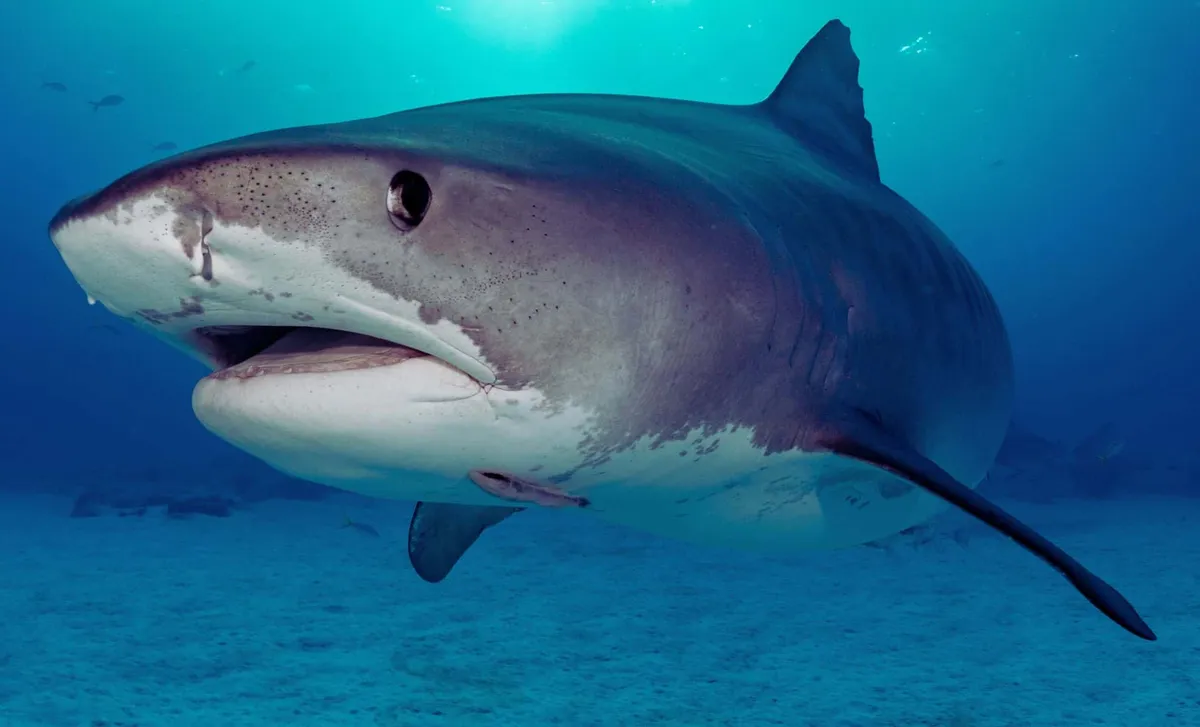
Recent research highlights a concerning trend: shark teeth, known for their exceptional cutting efficiency, are increasingly susceptible to changes in ocean chemistry. A 2025 study published in Frontiers in Marine Science delves into how shifting ocean conditions may compromise the structural integrity of these predator teeth, offering vital insights into the ecological repercussions of global carbon emissions.
Ocean acidification, primarily driven by the increased absorption of atmospheric CO₂, leads to a decrease in seawater pH, rendering it more corrosive to calcium- and phosphate-based structures found in marine organisms. Sharks, recognized as apex predators, depend heavily on their teeth for capturing and processing prey. “Shark teeth, despite being composed of highly mineralized phosphates, are still vulnerable to corrosion under future ocean acidification scenarios,” stated first author Maximilian Baum from Heinrich Heine University Düsseldorf (HHU). “They are highly developed weapons built for cutting flesh, not for resisting ocean acid.” The study reveals that even slight changes in ocean pH could significantly affect predator-prey dynamics, as weakened teeth may diminish sharks’ hunting efficiency, potentially cascading through marine ecosystems and threatening biodiversity.
In a series of laboratory simulations, researchers subjected shark teeth to water conditions that reflect projected acidification levels over the next century. The results were striking: “We observed visible surface damage such as cracks and holes, increased root corrosion, and structural degradation,” said senior author Professor Sebastian Fraune. Teeth that were once sharp and resilient exhibited clear signs of weakening, underscoring the urgent need to monitor pH trends in the oceans globally. “Maintaining ocean pH near the current average of 8.1 could be critical for the physical integrity of predators’ tools,” Baum emphasized. Without such measures, we may encounter a new definition of a gummy shark, where teeth lose their effectiveness in gripping and cutting prey.
The role of sharks in preserving healthy ocean ecosystems cannot be overstated, as they regulate populations of mid-level predators and prey. A decline in the effectiveness of their teeth could hinder predation efficiency, indirectly affecting fish stocks crucial for human consumption and economic activities. Furthermore, changes in shark populations could disrupt marine food webs, leading to unforeseen ecological imbalances. This study highlights the interconnectedness of ocean chemistry, predator functionality, and ecosystem health, illustrating that human-induced climate impacts reach beyond apparent environmental changes to expose critical biological vulnerabilities.
This research originated from a bachelor’s project and evolved into a peer-reviewed publication, showcasing the significance of curiosity-driven student inquiry. “This study began as a bachelor’s project and grew into a peer-reviewed publication. It’s a great example of the potential of student research,” stated Fraune. “Curiosity and initiative can spark real scientific discovery.” The findings indicate that even early-stage research, when conducted rigorously, can make substantial contributions to understanding complex global issues such as ocean acidification, ultimately guiding conservation strategies and policy decisions.
As we confront the challenges posed by changing ocean conditions, this study serves as a call to action for ocean conservation. Protecting the delicate balance of marine ecosystems is essential, not only for the survival of sharks but for the sustainability of the world's oceans and the health of human populations that rely on these vital resources.